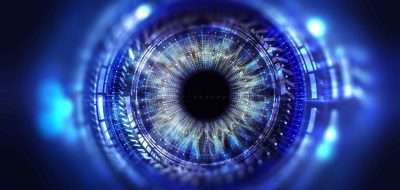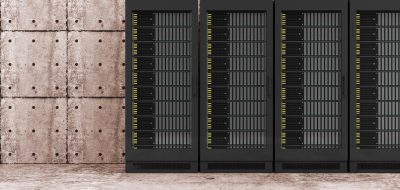My article in BUSINESS INSIDER published 22nd of December 2018.
Today, the world’s economies increasingly rely on the production of intangible goods. So, what should businesses do to become more competitive in an information-driven world? And, just (if not more) importantly, how can we – consumers, individuals – benefit from the huge data sets about us that businesses increasingly store and utilize?
Not that we aren’t, already, benefiting. I can get anywhere by plane within a few hours. Flight has never been so accessible and affordable. But that’s not just about jet engines and the Bernoulli effect. Think how much data needs to be sent, received and processed to make my journey easy. There are online searches, airline advertisements, price comparisons, flight bookings, ticket purchases, credit card transactions, promotions, transfers, connections, and luggage checking and handling. All that adds up to huge data sets – what we call big data.
We tend to forget about all that data as we go about our lives but hardly anyone would be surprised by IDC’s prediction that the digital universe – as measured by the volume of data created, processed, sent and delivered – will reach 180 zettabytes by 2025. That is 180 followed by 21 zeros. Already, the amount of information that surrounds every one of us every day equals the total volume of information that touched an individual over the entire twentieth century.
What does this mean to us now and how will it affect our lives tomorrow? Will we create standards for data use and sharing that protect our privacy? Will we be able to tell credible information from false? As customers and individuals, will we be able to manage our personal data? Will we be able to profit by it?
Can you sell yourself?
Our digital identity is comprised not only of our date of birth, address, phone number and e-mail address but increasingly information about our work, interests, health and finances. Consider digital wallets. These take a variety of forms, from digital cards to applications on our phones. They store our transactions, accounts and often our habits and shopping preferences. They contain a treasury of knowledge. Who is this data shared with? Commonly, the wallet makers, who aggregate and anonymize and subsequently sell them. Do we, the creators and putative owners of this data benefit in any way? Not much, apart from the bargains we may receive in the form of ubiquitous ads.
But innovative service providers may enable consumers to capitalize on the information that today generates profit only for businesses. Turning the tables could produce interesting results.
One company that has taken this approach to the roles of data selling and buying is Datacoup. According to its website, its mission is to change the current model by empowering users to leverage (and profit from) their own data. Datacoup enables its paying customers to create data profiles on its website. Datacoup then makes the information in the profile available to buyers, mainly banks and insurance companies, which pay the individual for access. A profile’s value rises or falls depending on its content.
Is this the tip of a new spear? For this inverted model to spread, we would have to change our habits and perhaps be less inclined to give our data away for free. Major legislative solutions and the willingness of the corporate world would also be necessary.

Internet of Things, or a data revolution
We are flooded with data, valuable and worthless, fake and real, needed and unnecessary. And now even more terabytes of data will be created independently of us through the Internet of Things. Assembling sensors, vehicles, robots, industrial and home appliances into a single digital organism will trip off an avalanche of new information.
A global network of collaborating devices is something very new. We’ve never seen an intelligent organism grow independently of humans, feeding on the information that it itself generates. How does one control this process? Is it controllable? The Internet of Things may one day challenge legal systems, forcing them to deal with mushrooming information whose owners will be largely anonymous and difficult to identify.
The drive to simplify
What should businesses do to thrive in an environment dominated by huge data sets? First, they must make their employees realize that the ability to process, collect, share, secure and monetize information will increasingly affect an organization’s market position and value. Therefore, modern data management is a key challenge faced not just by IT units but by the business itself. It is equally important to train employees to use data purposefully. For now, “machine learning” and “deep learning” are vague concepts in corporate boardrooms. And yet, it is these technologies that will determine the organization’s ability to function. In today’s business world, modern technologies are the only way companies can tell whether their marketing, product or sales strategy is working, and what to do if it’s not.
A vital criterion for assessing data management efficiency in enterprises is ease of use. Great user experience is a priority, not the whim of a spoiled customer. Data processing in a company should resemble driving a car: fast, safe and comfortable. Today’s consumers look for both instant results and comfort. Business managers should seek the same. There must be no gap dividing consumer electronics into smartphones, car navigation devices and tablets on the one hand and professional workplace applications on the other. The competition for good employees will be won by those who realize the importance of comfort and convenience for the users of systems and devices. The world has forced us to democratize the handling of tools that rely on sophisticated technologies. The rule, therefore, is that simpler is better. The rise of the cloud as a universal data exchange model has propelled the popularity of such applications as Dropbox, Google Drive and WeTransfer. Complicated project management has been simplified by Asana and Trello, while task scheduling and note management has become much more enjoyable thanks to the likes of Evernote. All these tools follow one fundamental principle: the simpler it is, the more efficient it is.
Understanding the information market
Data is bound to be monetized at an ever-faster rate. The push to commercialize data began around 2000 with the bursting of the so-called dotcom bubble. The internet-based companies that survived launched a search for new income streams. This gave birth to the idea of creating demand for a whole new product: data. The idea caught on in the marketing community, which badly needed data to identify customer behaviors and profiles. In fact, everyone needs data today, which is why the companies that offer tools for instant information sorting and retrieval have an interesting future ahead of them. The buying of off-the-shelf algorithms by big business may become a trend, leading in time to the emergence of new technology industries. Against this background, it is difficult to disagree with Hal Varian, Google’s chief economist,who claims that piling data on top of data will not, in itself, add to its value. Instead, value will be gained by the intelligence that goes into designing the algorithms that make sense of it all. Google’s success, he says, “is about recipes, not ingredients.”

The coming algorithm reckoning
By inviting artificial intelligence into our world, we will create many jobs for lawyers. Undoubtedly, a battle will break out between social media owners, insurers and regular citizens. Each of these groups see data and information protection rights in a completely different light, and data has become a very sensitive and controversial commodity. Ever more regulators are aware of just how sensitive it is as they attempt to design laws (such as the EU’s General Data Protection Act that goes into effect May 25) to regulate data trading.
Regulation is not going to be easy. “Machine learning,” for example, is automated to perfects itself as it acquires experience; the more search queries an artificial intelligence processes, the better its responses. The question therefore is whether the algorithms that use this technology will be able to protect our data from undesirable use. While technologically feasible, every business with an interest in acquiring and using as much data as it can get its hands on will see the question from a very different perspective.
Read more in the full article.
Link to the full article (in Polish)
Related articles
– Reflections on ethical leadership
– Automation will not destroy all jobs
– Uncertainty has its upside. Leadership in digital economy
– The “sharing economy” was envisioned nearly 100 years ago










AndrewJo
Norbert, I respect your writings and viewpoint. However, there is tremendous amount of responsibility of blame and accountability of the Technology firms. Of course, the military wants new technology. The cut throat gains by big firms did not consider public privacy or absurd innovation that did not consider the evolution of Humanity. You might have Tim drinking his Mountain Dew in Mountain View, CA and thinking how he can work on the new brain interface. The public has been studied by one of the biggest search engines. They built the algorithms around human behavior. No governance equals the current state.
AndrewJo
Norbert – don’t get me wring. It’s a very good article. Inpiring
AndrewJo
There’s no way to stop the development, just because it may benefit military; and I believe to set a ‘standard’ is naive thinking – will North Korea, Iran submit to the same standard. Will US and China no try to gain advantage one over another in this ‘standards’?
As with the nuclear powers – the industrial military power will be about a balance between the most powerful nations, and whether the most deadly weapons are deployed – relies on whether that balance is kept.
Acula
Change is coming.. inevitably. Or rather.. change is inevitable. Agree?
johnbuzz3
New age internet banking is evolving while keeping security as much as possible. Even though digitalization is a risk factor, its productivity and efficiency have overshadowed the risks. Recently, digital product engineering has brought in a lot of changes in the world to make it more tech superior and efficient. It has been able to bring every person closer to each other. In the near future, specialists are expecting that more than 30 billion digital products will be connected remotely with each other.
John Accural
In today’s global economy, the humanities are essential since we deal with a wide variety of cultures, political systems, economies and religions. In business we always said: Forewarned is forearmed.
Zoeba Jones
Actually we will be still quite far to be able to understand how to optimize us. We will have just a black box with billions of adjustment knobs without precise knowledge how to use them and only limited understanding what they serve for. This will be just the beginning of a long journey.
Tom Jonezz
If AI depends on having a data set to learn from than chances are the interesting things Chinese AI can do will only work in China. The Chinese government trains an AI on their intranet to figure out how to push public opinion around, but it flops on the English internet because the average Chinese netizen thinks differently from your average redditor.
TonyHor
It’s time to shred the societal contract with these malthusian tech oligopolies who want to control and brainwash society with climate indoctrination.
TomCat
I don’t know if we’ll make all that much progress in 2019, but we’ll see. The IoT and smart cities in many ways go hand in hand. But what we really need is an open source solution. And AI will only really progress if we go back to studying AGI.
Mac McFisher
Great read. All the best in 2019
Zoeba Jones
Knowing the human genome is not the only key. Understanding the human Microbiome and its interactions with different substances is also critical. This is why there will be an opportunity across the Agtech. Companies like hashtag#ProteonPharma are well positioned to take advantage of this with our focus on the human Microbiome and investments in bacteriophages.
TonyHor
I don’t get the hate. Why is crypto being compared to ideals and not to current products in the market right now? Namely SWIFT and payment options like visa. The primary idea is that its digital currency. This comes across the same as people 20 years ago who wouldn’t put their credit card details in amazon.
JohnE3
Nice 🙂
DDonovan
Great read :-/0
AndrewJo
Blockchain systems are supposed to be more trustworthy, but in fact they are the least trustworthy systems in the world. Today, in less than a decade, three successive top bitcoin exchanges have been hacked.
AndrewJo
Good one
CaffD
With no middle man there is no one to block a payment. You could send a payment to anyone (for better or worse ex:Wikileaks) and nobody could block it. But it could also mean freedom for people with restrictive capital controls (China, Turkey… etc.)
Adeptus99
It has a public chain system on which all of its nodes are connected and from there a the necessary functions and programming can be done. Active workflows are installed making effective response available to solve users program and enhance all the activities done in it.
johnbuzz3
One big thing being discussed is the question: how do we get rid of passwords. Passwords with all these arbitrary rules for word length and character inclusion are counter-intuitively insecure because most people will write them down somewhere or use something easy to guess or use the same password everywhere. The last one is the worst offender because it gives large amounts of access if you get the password once. We know that we need an alternative to passwords, but we don’t know what the solution is yet.
PiotrPawlow
Agree on most, but we have to recognize poor-paid workforces, lack of personal insurance etc as well.
And99rew
because of the open nature of it, anyone with an internet connection can connect to it, anywhere.
Jack666
With iTunes and the App Store, platform businesses started to take over, where value is created by facilitating exchange between interdependent groups, usually consumers and producers. And since Uber & AirBnB, exponential organization models are spreading, where new organizational techniques & technologies are used to create output from owned assets 10x larger compared to peers.